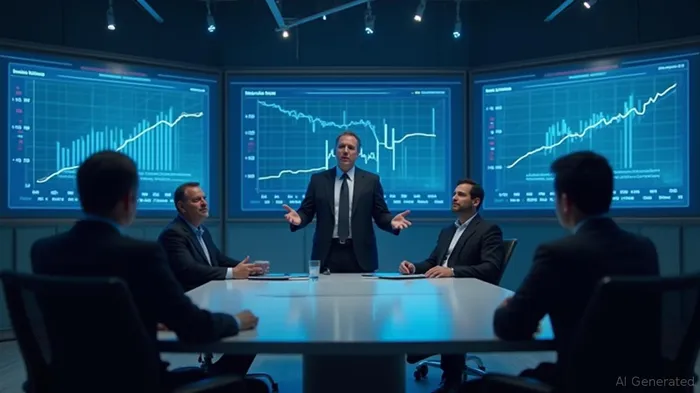Microsoft's AI Investment Backfires as OpenAI's ChatGPT Eats into Copilot's Market Share
Microsoft's 100 million dollars investment in OpenAI has led to an unexpected outcome: the creation of a formidable competitor. Initially hailed as a visionary move that capitalized on the AI frenzy sparked by ChatGPT, Microsoft's partnership with OpenAI has now become a source of significant challenges. The two companies are now locked in a fierce battle in the AI assistant market, with OpenAI's ChatGPT steadily eroding Microsoft's Copilot's market share in enterprise office settings.
Microsoft, known for its dominance in the global office environment with Windows, has been striving to develop its own AI-assisted features to further enhance its ecosystem. However, Copilot's market reception has fallen short of expectations, primarily due to the competitive presence of ChatGPT, which is based on the same AI model. Sales personnel from MicrosoftMSFT-- have reported difficulties in clearly differentiating Copilot from ChatGPT to clients, as both products share the same core technology.
Additionally, the AI project manager at Microsoft has highlighted the complexities involved in integrating OpenAI's updates into Microsoft's products. Each new version of OpenAI's model requires independent testing by Microsoft to ensure optimal user experience and compliance with safety regulations. This process often takes several weeks, leading to delays in updates and potentially reducing the overall benefit for Microsoft.
These issues have resulted in many companies reporting that their employees prefer using ChatGPT over Copilot. For instance, a pharmaceutical giant, which had announced the purchase of Copilot for 20,000 employees last year, now finds that its staff predominantly use ChatGPT in their daily operations.
The delicate nature of the partnership between Microsoft and OpenAI has become increasingly apparent, adding layers of complexity to their relationship. Recently, OpenAI's CEO mentioned a conversation with Microsoft's CEO, acknowledging the presence of sensitive issues in their deep collaboration. Despite these challenges, both companies have expressed a commitment to continuing their partnership.
Earlier this year, OpenAI announced a joint venture with SoftBank and OracleORCL-- to operate the "Stargate" data center project, with Microsoft serving only as a technical advisor. This move raised suspicions about potential disagreements between the two companies. OpenAI's subsequent attempts to secure 40 billion dollars in funding from SoftBank by transitioning into a for-profit entity were met with resistance from Musk and Microsoft. The latest developments indicate that OpenAI's efforts to pivot towards a non-profit model have also been obstructed by Microsoft, further straining their relationship.
Despite public statements from both companies emphasizing their continued collaboration, market observers are closely watching the situation. The ongoing rivalry between Copilot and ChatGPT underscores the underlying tensions between Microsoft and OpenAI. OpenAI claims to have 3 million enterprise paying users, a 50% increase from a few months ago, while Microsoft reports that 70% of Fortune 500 companies are using Copilot, with paying users tripling year-over-year.
Microsoft is unlikely to allow its office AI services to be entirely dominated by OpenAI, while OpenAI is eager to secure stable revenue streams to support its research. The core conflict between these two giants will likely shape the future landscape of the AI market in the United States. 
Stay ahead with the latest US stock market happenings.
Latest Articles
Stay ahead of the market.
Get curated U.S. market news, insights and key dates delivered to your inbox.

Comments
No comments yet